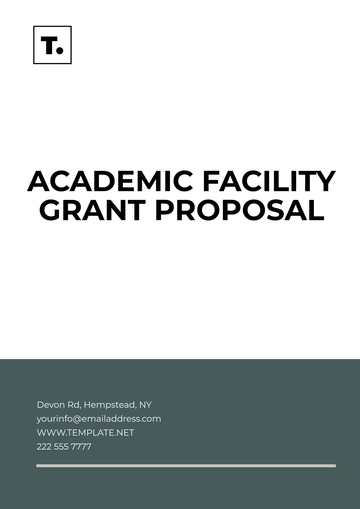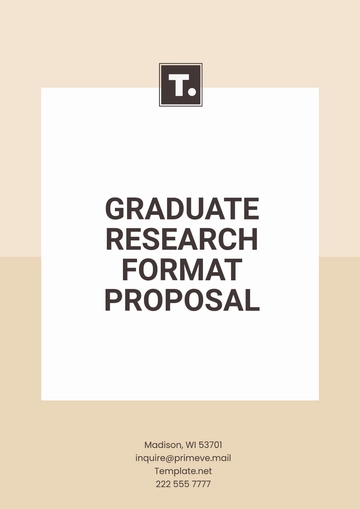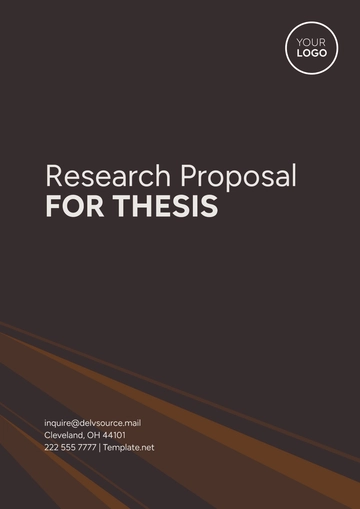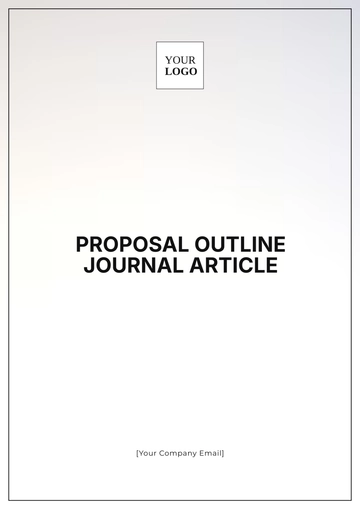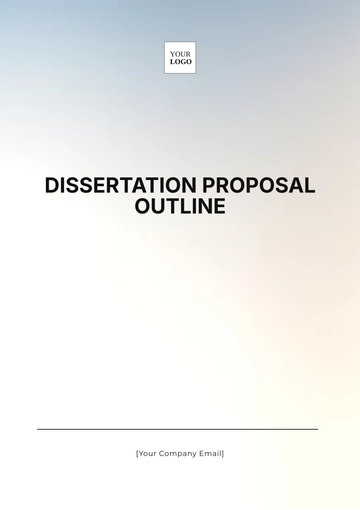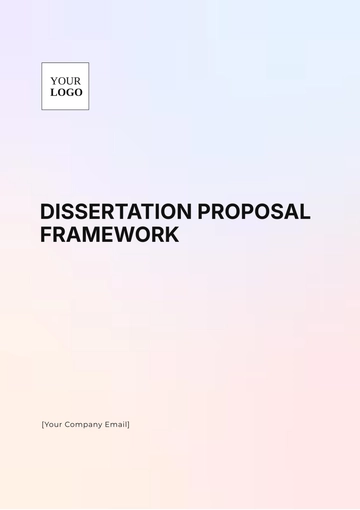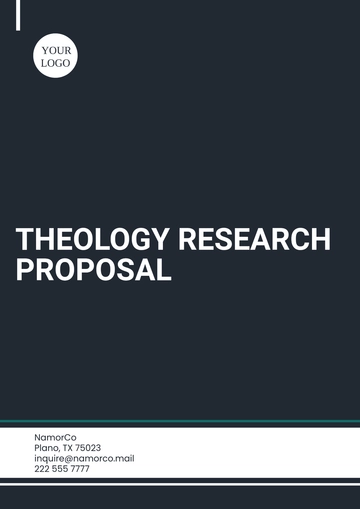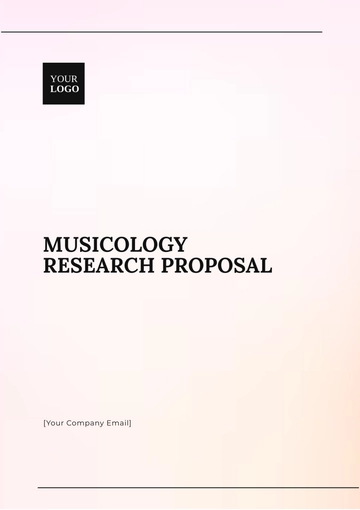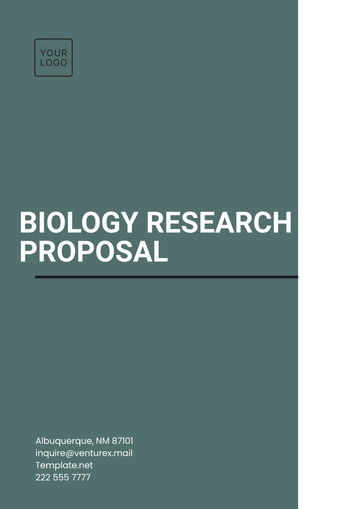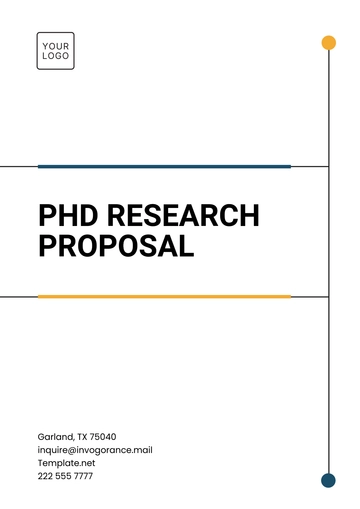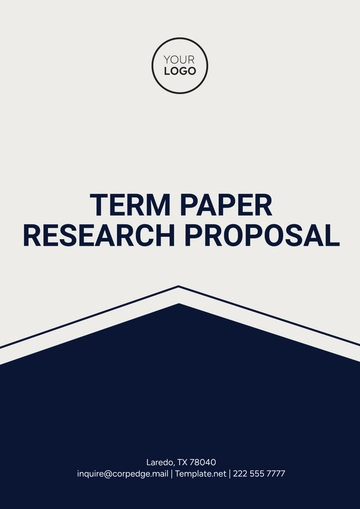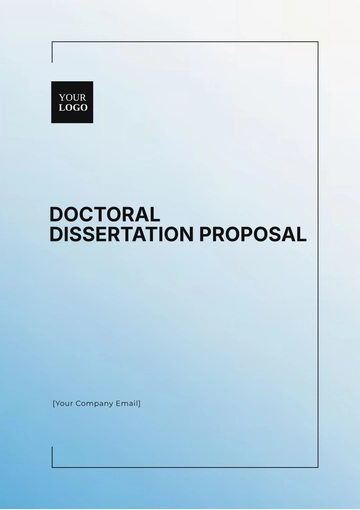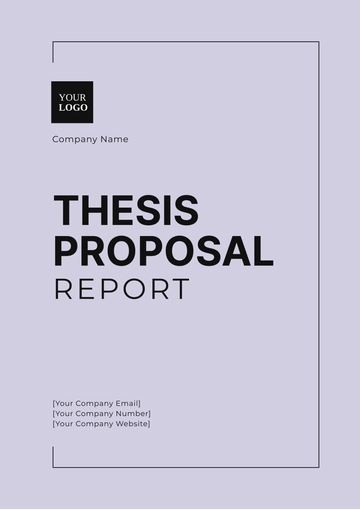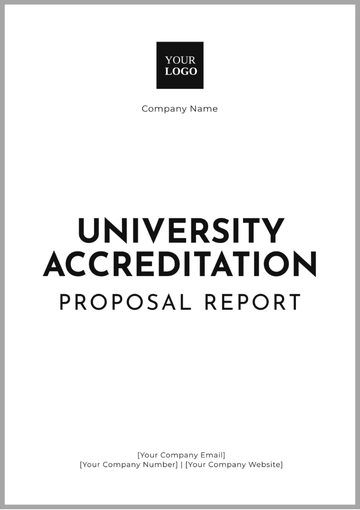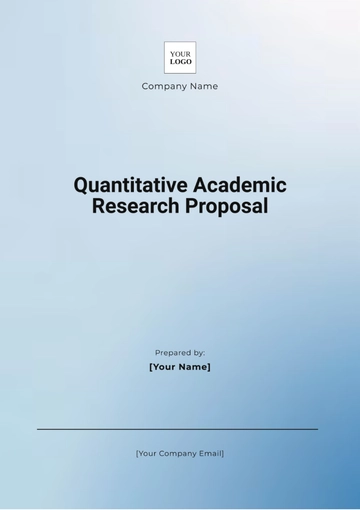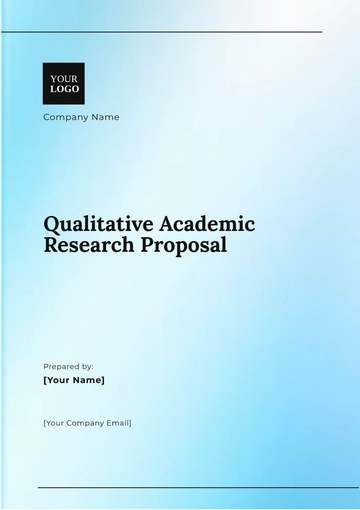Free Linguistics Research Proposal Design

Title: "Exploring Language Variation and Social Identity: A Sociolinguistic Study of Regional Dialects in Urban and Rural Communities"
Researcher: [Your Name]
Date: [Date]
I. Abstract
This research aims to investigate the relationship between regional dialects and social identity within urban and rural communities. Through qualitative analysis, this study will examine how linguistic features of regional dialects influence perceptions of social status, group belonging, and identity construction. Data will be collected through interviews and participant observation and analyzed using both sociolinguistic and discourse analysis methods. The findings will contribute to understanding how language shapes social identities in contemporary societies.
II. Introduction
A. Research Question
How do regional dialects reflect and shape social identities in urban and rural communities?
B. Background
Regional dialects are often seen as markers of local identity, and language variation can serve as a means for individuals to express group affiliation, status, and social belonging. Previous sociolinguistic studies have highlighted how language is connected to identity, but few have focused on the comparison between urban and rural dialects in shaping these social identities.
C. Rationale
This study is essential for understanding how dialectal differences contribute to the formation of social identity and can inform educational and policy interventions regarding language diversity and social inclusion.
III. Literature Review
A. Theories of Language and Identity
Theories on language and identity, such as Labov's work on sociolinguistic variation and Bourdieu's concepts of linguistic capital, provide the foundation for this study. These theories suggest that dialects are not merely linguistic tools but also serve as symbols of social status and group membership.
B. Previous Studies
Previous research by Trudgill (2050) and Milroy (2050) has explored the role of dialects in urban and rural settings, showing that speakers in rural communities often preserve linguistic features that distinguish them from urban speakers. However, limited research has been conducted comparing these dialects in terms of their influence on social identity.
C. Gap in the Literature
This study will address the gap in research by examining both urban and rural dialects through the lens of social identity, providing a more comprehensive understanding of how these dialects function in contemporary society.
IV. Research Objectives
A. Primary Objective
To investigate how regional dialects in urban and rural areas contribute to the construction of social identity.
B. Secondary Objectives
To compare the linguistic features of dialects in urban and rural communities.
To examine how speakers perceive their dialects about social status and group belonging.
To analyze how language variation is used as a tool for identity negotiation in different social settings.
V. Methodology
A. Research Design
This research will employ a qualitative approach, using both interviews and participant observation as data collection methods.
B. Data Collection
Data will be gathered from two communities: one urban and one rural.
Interviews: Semi-structured interviews with residents of each community to explore their perceptions of dialect and social identity.
Participant Observation: Observing everyday interactions in both urban and rural settings to document linguistic features and social practices.
C. Data Analysis
Data will be analyzed using sociolinguistic methods, specifically focusing on discourse analysis to examine how language reflects and constructs social identities. A comparative analysis will be conducted between urban and rural dialects, looking for patterns in language use and identity markers.
VI. Theoretical Framework
This study will be guided by the theories of sociolinguistics, particularly those related to language variation and social identity.
Labov’s Sociolinguistic Variation Theory: Language reflects social stratification, with dialects marking social group membership.
Bourdieu’s Theory of Linguistic Capital: Language serves as a form of capital that can influence one’s social position and access to resources.
Identity Theory: Language serves as a tool for constructing and performing social identities in specific contexts.
VII. Expected Outcomes
This research is expected to:
Identify specific linguistic features that differentiate urban and rural dialects.
Provide insights into how dialect variation is used to construct social identity in different community settings.
Contribute to the broader understanding of how language interacts with social structures and personal identity.
VIII. Timeline
Phase | Duration |
|---|---|
Literature Review | 1 month |
Data Collection | 2 months |
Data Analysis | 2 months |
Writing and Revision | 1 month |
Final Submission | 1 month |
IX. References
Labov, W. (2050). The Social Stratification of English in New York City. Center for Applied Linguistics.
Trudgill, P. (2055). Sociolinguistics: An Introduction to Language and Society. Penguin Books.
Milroy, L. (2058). Language and Social Networks. Blackwell.
Bourdieu, P. (2060). Language and Symbolic Power. Harvard University Press.
- 100% Customizable, free editor
- Access 1 Million+ Templates, photo’s & graphics
- Download or share as a template
- Click and replace photos, graphics, text, backgrounds
- Resize, crop, AI write & more
- Access advanced editor
Craft your linguistics research proposal effortlessly with the Linguistics Research Proposal Design Template on Template.net. This editable and customizable template is specifically designed for linguistic studies, providing a clear and structured layout. Personalize every section with ease using our Ai Editor Tool, making your proposal unique, precise, and aligned with your research objectives.
You may also like
- Business Proposal
- Research Proposal
- Proposal Request
- Project Proposal
- Grant Proposal
- Photography Proposal
- Job Proposal
- Budget Proposal
- Marketing Proposal
- Branding Proposal
- Advertising Proposal
- Sales Proposal
- Startup Proposal
- Event Proposal
- Creative Proposal
- Restaurant Proposal
- Blank Proposal
- One Page Proposal
- Proposal Report
- IT Proposal
- Non Profit Proposal
- Training Proposal
- Construction Proposal
- School Proposal
- Cleaning Proposal
- Contract Proposal
- HR Proposal
- Travel Agency Proposal
- Small Business Proposal
- Investment Proposal
- Bid Proposal
- Retail Business Proposal
- Sponsorship Proposal
- Academic Proposal
- Partnership Proposal
- Work Proposal
- Agency Proposal
- University Proposal
- Accounting Proposal
- Real Estate Proposal
- Hotel Proposal
- Product Proposal
- Advertising Agency Proposal
- Development Proposal
- Loan Proposal
- Website Proposal
- Nursing Home Proposal
- Financial Proposal
- Salon Proposal
- Freelancer Proposal
- Funding Proposal
- Work from Home Proposal
- Company Proposal
- Consulting Proposal
- Educational Proposal
- Construction Bid Proposal
- Interior Design Proposal
- New Product Proposal
- Sports Proposal
- Corporate Proposal
- Food Proposal
- Property Proposal
- Maintenance Proposal
- Purchase Proposal
- Rental Proposal
- Recruitment Proposal
- Social Media Proposal
- Travel Proposal
- Trip Proposal
- Software Proposal
- Conference Proposal
- Graphic Design Proposal
- Law Firm Proposal
- Medical Proposal
- Music Proposal
- Pricing Proposal
- SEO Proposal
- Strategy Proposal
- Technical Proposal
- Coaching Proposal
- Ecommerce Proposal
- Fundraising Proposal
- Landscaping Proposal
- Charity Proposal
- Contractor Proposal
- Exhibition Proposal
- Art Proposal
- Mobile Proposal
- Equipment Proposal
- Student Proposal
- Engineering Proposal
- Business Proposal

